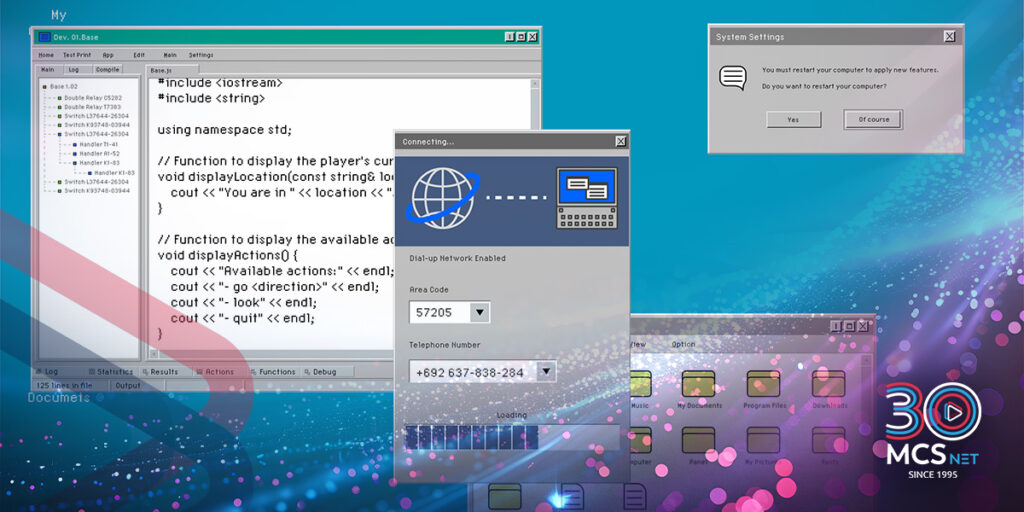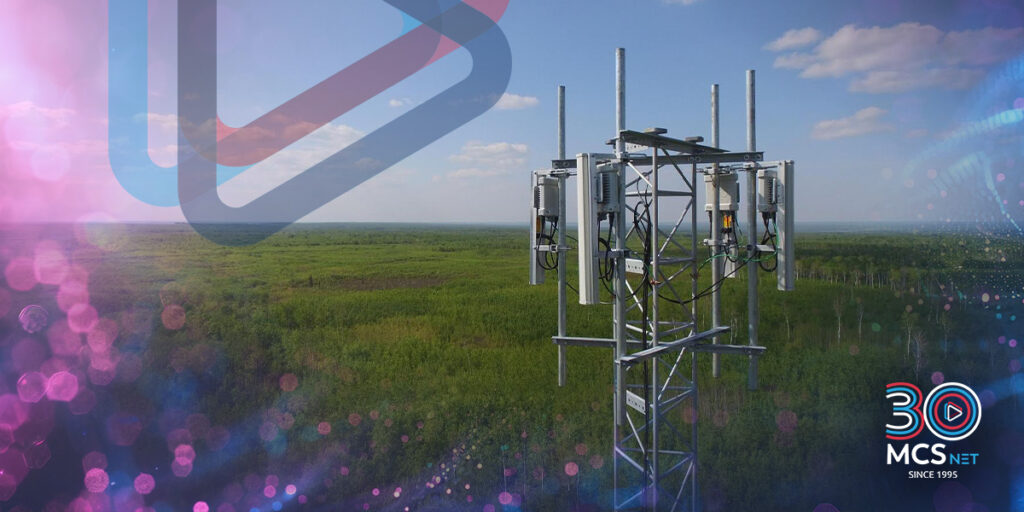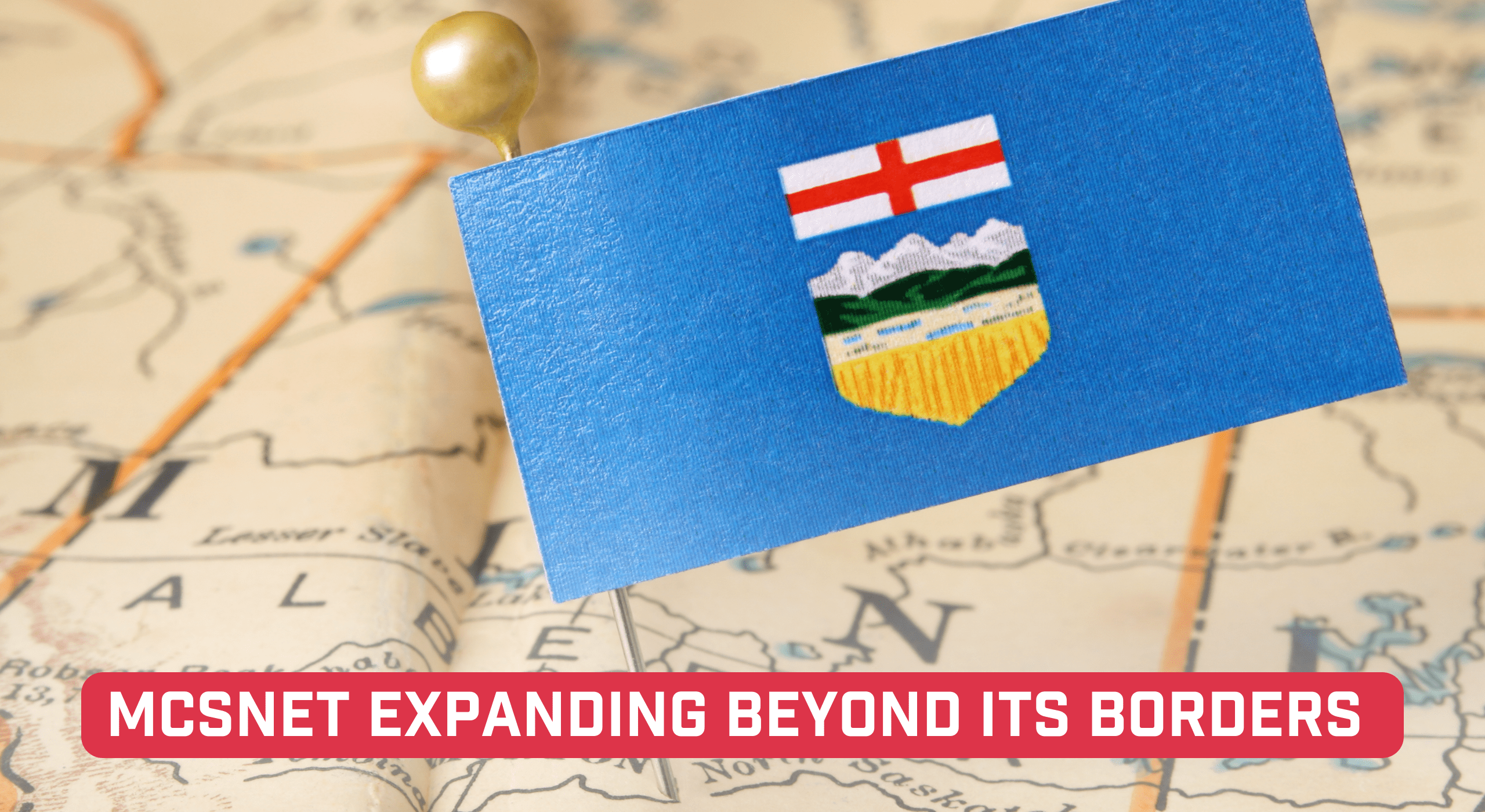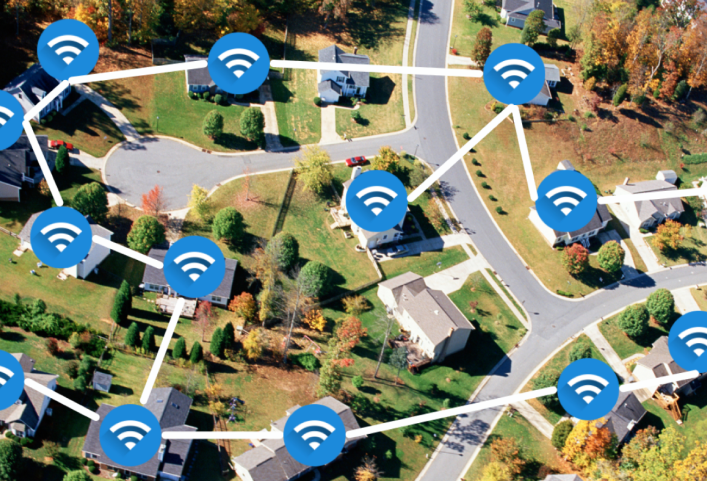For those who live and work in rural communities, the internet has always been more than a convenience – it’s a lifeline. But getting fast, reliable internet in the countryside hasn’t always been easy. From the noisy buzz of dial-up modems to today’s high-speed wireless technologies, the journey of rural connectivity is one of innovation, perseverance, and transformation.
At the heart of rural internet transformation stands MCSnet, a company that has been instrumental in bringing reliable internet to the heartlands of Alberta.
Here’s a look back at how far we’ve come and where things are going.
The Dial-Up Days: Patience Required
If you ever waited a full minute to load a single webpage, you probably experienced the internet in the early 1990s.
Dial-up internet relied on standard telephone lines to transmit data. Connections were slow – often no more than 56 kbps – and using the internet meant tying up your home phone line. Rural users often had it worse, with fewer providers and lower infrastructure investment. But at the time, just having access to email or basic browsing felt revolutionary.

Fixed Wireless: A Leap Forward
As internet use grew, rural communities needed better solutions. Laying cable across long distances and tough terrain wasn’t always possible. That’s where fixed wireless came in.
Fixed wireless technology uses towers to send signals directly to homes with receivers. It’s more affordable than laying fiber and can cover wide areas, making it a go-to solution for many rural providers.
In regions like Alberta, local innovators began building wireless infrastructure tower by tower, often bootstrapping with whatever was on hand. It wasn’t perfect, but it made the internet more accessible.
Starting as a family-owned business in St. Paul, Alberta, MCSnet was one of the innovators who set out to bring reliable and fast internet to rural communities. It began with developing our own wireless radio prototypes, based on “Pringles” cans. The commitment to innovation and community laid the foundation for what would become one of Alberta’s leading internet service providers.
Embracing Fiber Optics
In urban centers, fiber optic networks have become the gold standard for the internet, capable of delivering symmetrical gigabit speeds with ultra-low latency.
But for rural areas, the costs and logistics of burying fiber infrastructure remain a major barrier. Sparse populations and long distances make traditional fiber rollouts extremely expensive. As a result, many rural areas were left out of the broadband boom at least temporarily.
Undeterred, MCSnet invested heavily in building its own private fiber optic network. By 2015, MCSnet had laid over 2,000 kilometers of fiber, connecting numerous towers and enhancing the backbone of their services.

High-Frequency Wireless: GigAir A Rural Breakthrough
More recently, rural internet has taken another leap forward thanks to millimeter-wave (mmWave) technologies, like the MCSnet GigAir, that deliver fiber-like speeds over the air. Yes, over the air.
Operating on the 60 GHz frequency, these high-capacity wireless systems create dense networks of nodes that connect homes and businesses with very low latency. This setup ensures high reliability and impressive speeds of up to 1000 Mbps. In the right conditions, they can rival the speed and reliability of fiber, without the need to dig up roads or string cables.
The MCSnet GigAir technology is truly game changing for rural communities, helping to connect small towns, farms, and remote cabins with speeds once limited to major cities. The best part? Installation is swift and non-intrusive, requiring just a rooftop antenna.

What’s Next? – One Step Closer to Full Connectivity
The story of rural internet is still being written with new fixed wireless technologies bringing 500 to 1000 Mbps speeds. What began with dial-up modems and blinking routers has become a landscape of high-speed, low-latency solutions that connect even the most remote homes.
Whether through fiber, GigAir, or fixed wireless, rural internet continues to evolve. For providers like MCSnet, ensuring fast and reliable local service and infrastructure development is a priority, closing the digital divide one community at a time.
Celebrating 30 Years: MCSnet’s Commitment to Rural Alberta
From its modest beginnings to its current status as a technological trailblazer, MCSnet’s journey is a testament to perseverance, innovation, and community focus. As they celebrate their 30th anniversary, their mission remains clear: to ensure that every rural Albertan has access to fast, reliable internet.
In a world where connectivity is no longer a luxury but a necessity, MCSnet continues to light the way, proving that with vision and dedication, even the most remote communities can be brought into the digital age.
Ready to explore high-speed, reliable internet made for rural communities?




